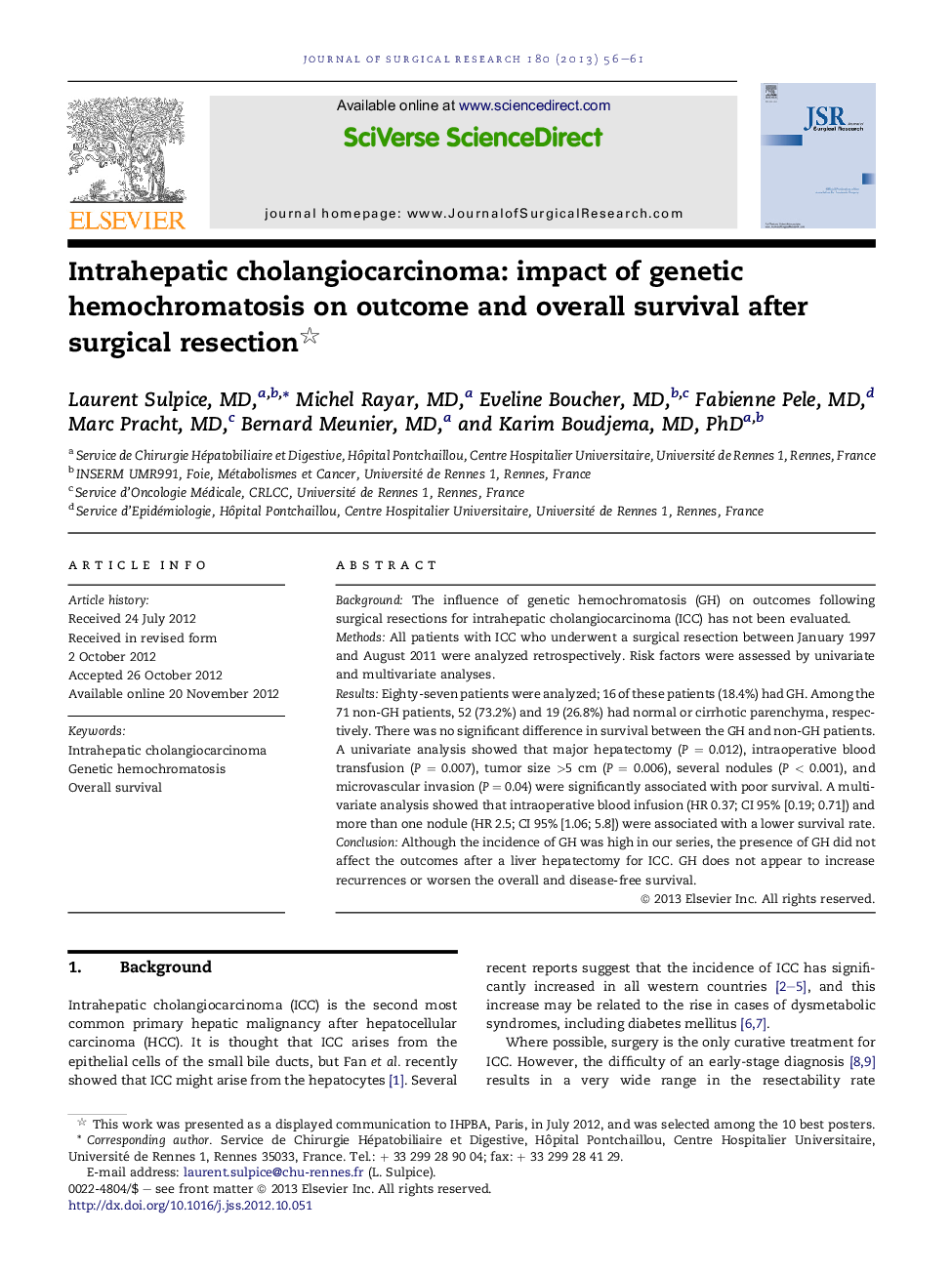| Article ID | Journal | Published Year | Pages | File Type |
|---|---|---|---|---|
| 4301170 | Journal of Surgical Research | 2013 | 6 Pages |
BackgroundThe influence of genetic hemochromatosis (GH) on outcomes following surgical resections for intrahepatic cholangiocarcinoma (ICC) has not been evaluated.MethodsAll patients with ICC who underwent a surgical resection between January 1997 and August 2011 were analyzed retrospectively. Risk factors were assessed by univariate and multivariate analyses.ResultsEighty-seven patients were analyzed; 16 of these patients (18.4%) had GH. Among the 71 non-GH patients, 52 (73.2%) and 19 (26.8%) had normal or cirrhotic parenchyma, respectively. There was no significant difference in survival between the GH and non-GH patients. A univariate analysis showed that major hepatectomy (P = 0.012), intraoperative blood transfusion (P = 0.007), tumor size >5 cm (P = 0.006), several nodules (P < 0.001), and microvascular invasion (P = 0.04) were significantly associated with poor survival. A multivariate analysis showed that intraoperative blood infusion (HR 0.37; CI 95% [0.19; 0.71]) and more than one nodule (HR 2.5; CI 95% [1.06; 5.8]) were associated with a lower survival rate.ConclusionAlthough the incidence of GH was high in our series, the presence of GH did not affect the outcomes after a liver hepatectomy for ICC. GH does not appear to increase recurrences or worsen the overall and disease-free survival.
